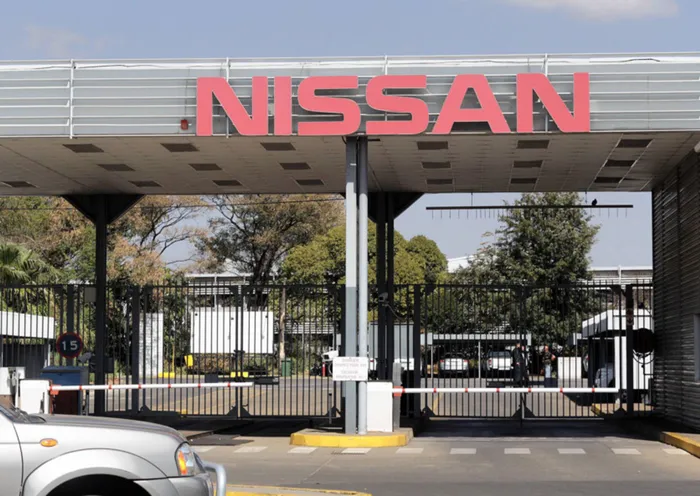Appeal granted for Nissan SA ex-employee ordered to repay over R350,000 for studies in Japan

Nissan South Africa wants a former employee to pay back over R350,000 which was used on her while she was studying in Japan.
Image: File: Timothy Bernard
Senyatsi Bennita Phasha, a former employee of Nissan South Africa (NSA), has been granted permission to appeal after being ordered to repay the car manufacturer over R350,000 allocated for her studies in Japan.
Phasha appealed an order made by the South Gauteng High Court in Pretoria in September 2024.
The order was made after NSA sought relief at the high court, demanding that Phasha pay back money spent on her while she was studying in Japan for two years and subsequently failed to stay with the company for the required period upon her return.
Phasha worked for NSA as a fleet manager from October 2014.
After two years, in 2016, she was nominated to participate in the African Business Education Initiative For Youth (ABE) of the Japan International Cooperation Agency (JICA Agreement).
She signed a JICA Agreement on August 11, 2016.
Among other things in her appeal, Phasha argued that the court erred when it held that clause 14 of the JICA agreement was not a resolutive clause.
She contended the court erred in its legal interpretation by delving into the meaning and intent of the JICA agreement. Furthermore, she pointed out that the court neglected to acknowledge the ruling on the applicability of the parole evidence rule within the legal framework.
She further argued that evidence from NSA's HR manager should have been dismissed as hearsay evidence and that the court ought not to have admitted his evidence as he interpreted the terms of JICA agreement that he was not involved in its negotiation and signing.
Evidence from NSA HR Manager
During the initial hearing, an HR manager from NSA testified that the purpose of the programme was to ensure that the company keeps the correct pool of talent that will enable employees to plough back once the programme is completed.
He said after completing the programme, Phasha had to stay with the company for two years and six months, however, she only stayed for one year and three months. She resigned and took another position as a Product Manager in another company.
Her resignation troubled NSA and an application was launched seeking Phasha to pay back over R412,000 used for her upkeep while she was in Japan.
In her defence, Phasha said that Clause 14 of the JICA Agreement states: “The employee acknowledges that after completion of the programme, this agreement shall become null and void and the provisions of the agreement to be entered into between the parties shall apply”.
Based on this, she said the terms of the JICA Agreement were null and void, because her employment terms were then regulated by the provisions of the new contract of employment which she signed when she returned from Japan.
In his reply, the HR manager disputed Phasha’s evidence and explained that the new agreement that she signed when she returned from Japan, it was in line with NSA’s undertaking to offer her a new contract of employment upon her return and said the contract didn’t replace the JICA Agreement.
He said even though he was not involved in the drafting and execution of the agreement, the JICA Agreement falls under his division, and they attend to the administration thereof.
Judge rules against Phasa
At the time, acting judge M Ntanga said when Phasha completed the programme, NSA fulfilled its obligation by employing her in terms of the new contract of employment, however, this didn’t terminate the JICA Agreement because its purpose was to contribute towards NSA’s long-term strategy as well as assist Phasha in her role as a manager.
Judge Ntanga noted that NSA had miscalculated the amount Phasha had to pay back and said the amount will be reduced to what could be proven which was R353 005.89. Phasha was further ordered to pay the money with interest at the rate of 09.00%.
Appeal granted
When granting the appeal, judge Ntanga said, "I am satisfied that the applicant (Phasha) has met the threshold for the leave to appeal to be granted. I am persuaded that another court upon consideration of the issues raised in the application for leave to appeal may come to a different conclusion."
"I conclude that there are compelling reasons that the appeal should be heard and that it will be in the interest of justice for the leave to appeal to be granted. There are reasonable prospects that another court may come to a different conclusion."
sinenhlanhla.masilela@iol.co.za
IOL News
Get your news on the go, click here to join the IOL News WhatsApp channel.
